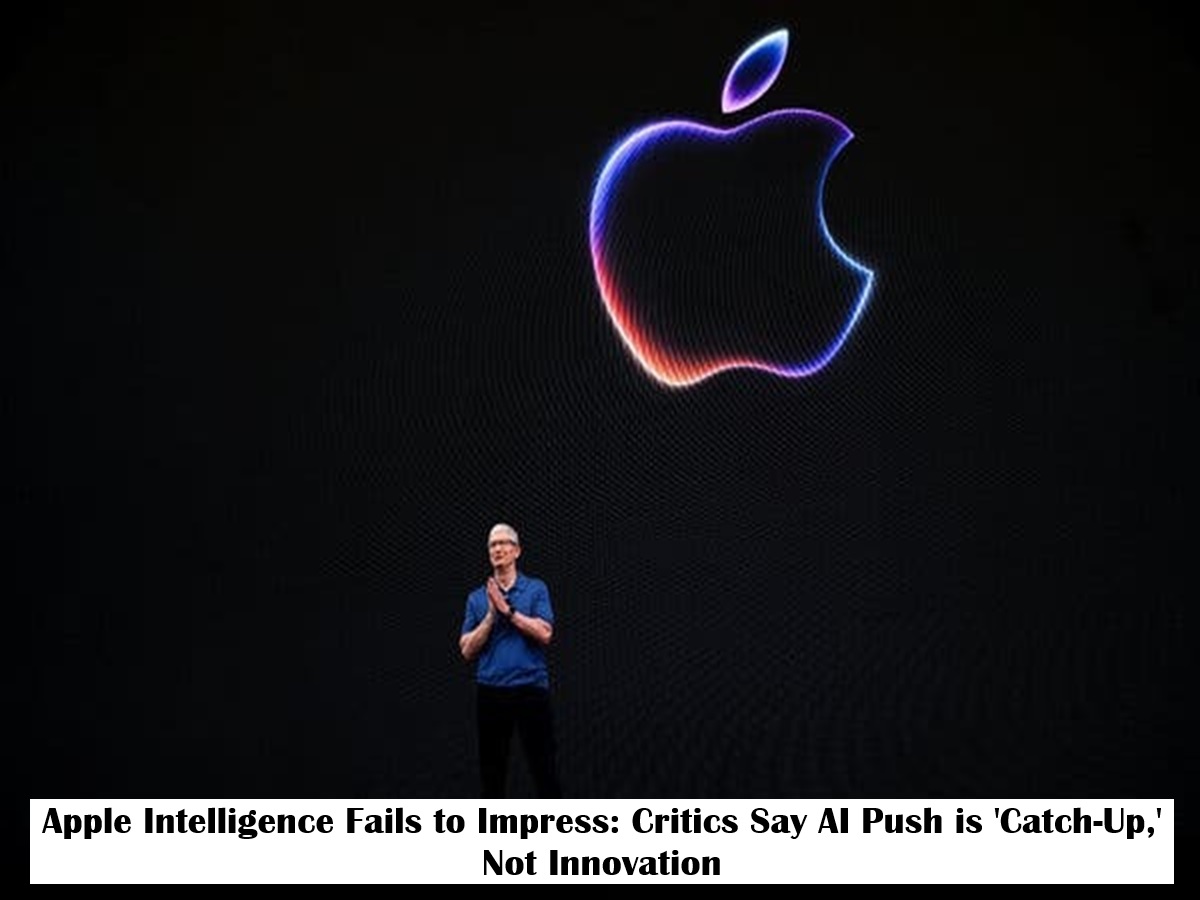
Suspense crime, Digital Desk : Apple's much-hyped entry into the generative AI race, branded "Apple Intelligence," landed with a thud rather than a bang at its annual Worldwide Developers Conference (WWDC). The slate of new features, designed to be deeply integrated into its operating systems, failed to ignite excitement among investors, with the company's stock price falling nearly 2% following the keynote presentation.
The underwhelming market reaction suggests a broader sentiment: Apple, the long-reigning king of innovation, is now playing catch-up in the AI arena.
A Game of Catch-Up, Not a Leap Forward
For nearly two hours, Apple executives showcased a variety of AI-powered tools coming to iOS 18, iPadOS 18, and macOS Sequoia. The key features included:
Writing Tools: AI assistance to rewrite, proofread, and summarize text across apps like Mail and Notes.
Image Playground: The ability to generate images in different styles (Animation, Illustration, or Sketch).
Genmoji: AI-created custom emojis based on text descriptions.
A Smarter Siri: An overhaul of the voice assistant to give it a more conversational tone and on-screen awareness.
While polished, critics were quick to point out that these features are functionally similar to capabilities that Google, Microsoft, and Samsung have offered their users for months. The presentation felt less like a revolutionary step forward and more like Apple's version of existing AI tools, neatly packaged with its signature focus on privacy.
Outsourcing Intelligence to OpenAI
Perhaps the most telling part of the announcement was the deep integration of OpenAI's ChatGPT. When Siri determines a query is too complex for its own capabilities, it will ask the user for permission to hand the request over to ChatGPT-4o.
This partnership, while practical, was widely interpreted as a tacit admission from Apple that it could not develop a world-class chatbot on its own in time. For a company that prides itself on controlling its entire hardware and software stack, outsourcing a core AI function to an external partner was seen by many as a sign of weakness in the ongoing AI race.
Limited Access and Market Disappointment
Adding to the lukewarm reception was the revelation that Apple Intelligence will have very limited availability. The on-device features will only work on the iPhone 15 Pro and Pro Max, and on iPads and Macs with M1 chips or later. This hardware limitation means that the vast majority of existing iPhone users will not have access to these new AI tools without upgrading to Apple's most expensive models.
Ultimately, the market's verdict was clear. The lack of a "one more thing" moment, combined with features that seemed iterative rather than groundbreaking, left investors and many in the tech community feeling that Apple had failed to demonstrate a clear advantage. In the end, the presentation left a lingering impression that for the first time in a long time, Apple is not leading the pack, but following it.
Read More: The 155cc Revolution Why Every Second Biker is Choosing a Yamaha R15 or MT-15 Now

 Share
Share



